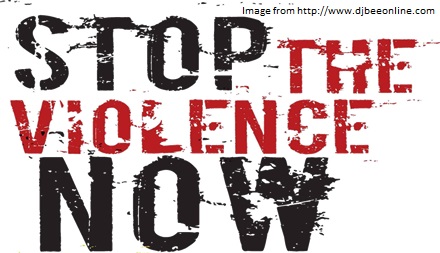Is LIFE the price for standing up against the wrong?

Shriya Sharma is a third year law student, brilliant at academics and exceptional at extra curricular. She is a strong supporter of women empowerment.
Is LIFE the price for standing up against the wrong?
Heather Heyer, 32, was one among the hundreds of protesters who had gathered in Charlottesville to decry the largest gathering of white supremacists in a decade and died when a car rammed into the crowd.
Heather Heyer dedicated her life to standing up for those she felt were not being heard. She was always passionate about the beliefs she held and spoke for people who couldn’t speak for themselves. She stood up against HATE. The girl whom many of us did not even know until a few days ago has left a mark in our conscience by her absence.
It is often been seen in recent times that those who stand up against injustice end up being scapegoats or victims of crimes themselves. There have been many times when hate has been expressed through violence. Considering the recent terrorist attacks in France, Nigeria, Kenya and the killings in Chicago, it seems as though, violence has become a norm throughout the world. Violent behaviour has been a part of human nature since time immemorial and even though dreaming of a world without violence seems near impossible we all need to constantly work towards making it a possibility.
One of the types of violence that has been very prevalent and is growing is violence against women.
“We’ve made incredible progress. But we cannot let up — not when… violence still kills three women a day. Not when one in five women will be a victim of rape in their lifetime. Not when one in three women is abused by a partner” – President Barack Obama
As rightly echoed by the former US president, violence against women has always been a great menace and has reached huge numbers of occurrence and details of brutality. Violence against women seems to have crossed all borders and in particular that of – AGE, with females who are very old to the ones still in a cradle being victimised. Thus, globally, it is high time for all of us, to rise up and work together to end violence and in particular, violence against women.
The United Nations defines violence against women as any act of gender-based violence that results in, or is likely to result in, physical, sexual or mental harm or suffering to women, including threats of such acts, coercion or arbitrary deprivation of liberty, whether occurring in public or in private life.
The different types of violence against women, include, but are not limited to: dating violence, domestic and intimate partner violence, emotional abuse, human trafficking, same-sex relationship violence, sexual assault and abuse, stalking, violence against immigrant and refugee women, violence against women at work, violence against women with disabilities.
Whatever type the violence might be, there are some commonly seen effects of it, some of which are depression, low self- esteem, loss of confidence, post-traumatic stress disorder, guilt or shame, anxiety and panic attacks, self-hate or self-blame, suicidal thoughts, a general sense of fear, a sense of being worthless or without hope.
Common actions after experiencing violence are thoughts or acts of suicide or self-injury, risky sexual behaviours, alcohol or drug abuse, eating disorders, etc.
Some physical injuries and health problems that arise due to violence are an increased risk of STD’s and HIV, which can lead to pelvic inflammatory disease, unwanted pregnancies, miscarriages and other reproductive problems, chronic pain syndrome, high blood pressure, breathing problems, digestion problems, heart aches etc.
Looking at these grave repercussions violence has, it becomes extremely important for us to help victims get over their unpleasant experiences and to look for risk factors that are commonly seen in such cases and thereby, undertake appropriate actions at the right time.
Risk factors for experiencing sexual violence
- Young age (more than half of all rapes occur before the age of 18)
- Drug or alcohol abuse.
- Having experienced sexual violence in the past
- Living in poverty
- Having risky sex, such as unprotected sex etc.
Risk factors for becoming sexually violent
- Alcohol and drug abuse
- Fantasies about forced sex
- Impulsive and anti-social behaviour
- Preference for impersonal sex
- Hostility towards women
- Extreme male stereotypical behaviours
- Sexual or physical abuse as a child
- Witnessed family violence as a child etc.
One should find inspiration from Heather, the “True American Hero”, who died doing what she believed in and thus, take some action to stand up against violence, TOGETHER.
Opinions are of the writer.


